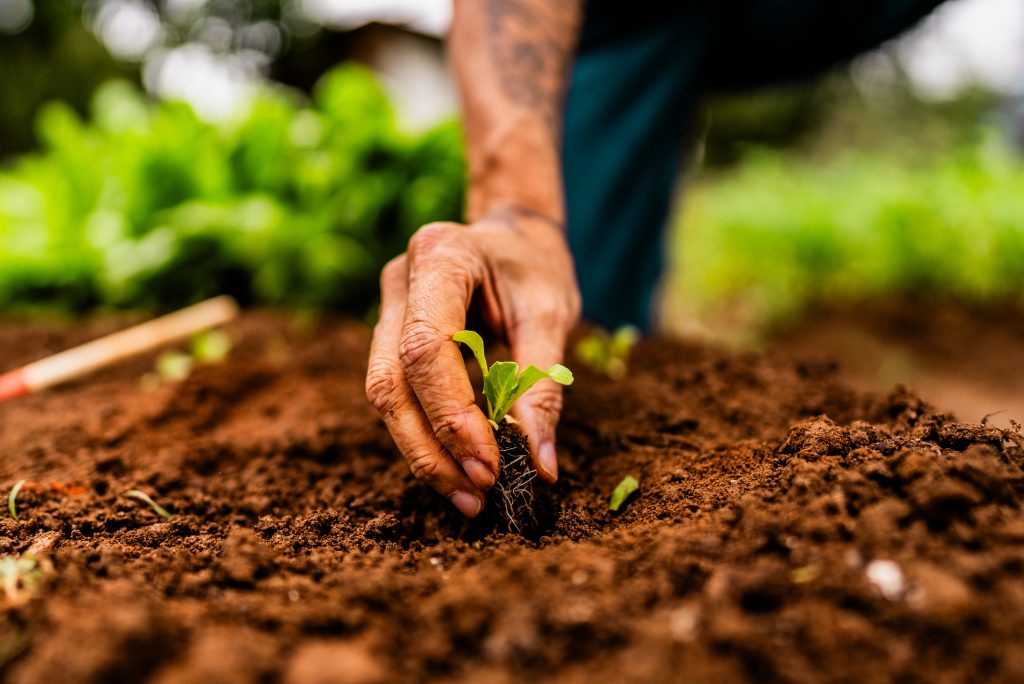The Science of Biochar

What Is Biochar?
Biochar is a carbon-rich material created through pyrolysis, a process where organic matter is heated in a low-oxygen environment. Unlike burning, which releases carbon, pyrolysis captures it in solid form. This makes biochar unique—not only does it improve soil health, but it also locks away carbon that would otherwise enter the atmosphere.
How Biochar Improves Soil Health
When added to garden soil or farmland, biochar acts like a sponge. Its porous structure holds moisture, helping plants thrive even in dry conditions. It also keeps nutrients in place instead of letting them wash away. On top of that, biochar creates millions of tiny spaces for beneficial microbes to live, encouraging a thriving underground ecosystem. Together, these qualities make soil healthier and more productive.
A History Rooted in Terra Preta
Biochar is not a new discovery. Thousands of years ago, Indigenous peoples in the Amazon basin enriched poor soils with what we now call “Terra Preta” or dark earth. By mixing charred organic matter into the ground, they created fertile soil that still remains rich today. This history proves just how long biochar has been linked to soil improvement and sustainable farming.
Physical Benefits in Garden Soil
The physical properties of biochar are where the magic happens. Its porous framework keeps soils from compacting and improves aeration, allowing roots to breathe easily. Soil aggregation—the clumping together of soil particles—also gets a boost, which creates stability and enhances water retention. Compost + biochar is often used together for even greater soil structure and fertility.
Chemical Interactions With Soil
Biochar’s chemistry helps balance soil pH. It can make acidic soils more suitable for crops and reduce alkalinity in high-pH soils. Even more, biochar can immobilize heavy metals and other contaminants, keeping them from harming plants. This makes it valuable for both farming and environmental cleanup.
Microorganisms and Biochar
Healthy microbes are vital for soil health, and biochar is the perfect habitat for them. Its surface provides shelter for mycorrhizal fungi and nitrogen-fixing bacteria, both of which boost plant immunity and nutrient uptake. At the same time, these good microbes outcompete harmful pathogens, creating natural protection for crops.
Biochar and Carbon Storage
One of the most exciting benefits of biochar is its role in carbon sequestration. Research shows that soils enriched with biochar can increase soil organic carbon by 12–102%. This not only improves fertility but also locks away carbon for centuries. By reducing greenhouse gas emissions like methane and nitrous oxide, biochar makes a big difference in fighting climate change.
Beyond Farming: More Applications
Biochar goes beyond improving garden soil. Its porous structure works in water filtration to capture pollutants, and it has been studied as a livestock feed additive that boosts animal health while lowering methane emissions. Recent research even shows biochar can help soils impacted by microplastics, restoring microbial diversity and supporting root development.
Why Biochar Matters
From ancient practices to modern science, biochar continues to prove itself as a game-changer. Whether blended with compost, added to farmland, or mixed into garden soil, biochar improves soil health, boosts plant growth, and locks carbon away for generations. It’s more than a soil amendment—it’s a sustainable solution for healthier crops and a healthier planet.







